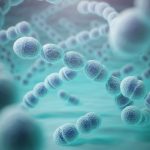Heartburn is a burning sensation in the chest caused by the regurgitation of bile and the acidic content of the stomach into the lower oesophagus.

Only about 5 % Due to Excessive Acid
It might surprise you that out of all the heartburn and reflux cases only about 5% is due to excessive acid production. In around 95% of the cases it is quite the opposite.
Acid needed for Digestion and Vitamin Absorption
Normally the stomach contains enough free hydrochloric acid to maintain a constant stomach acidity of between pH 1 and 2. The amount of acid produced increases rapidly following the ingestion of food, as it has an important role in the digestion, including: initiating protein digestion, stimulating the release of pancreatic enzymes and bile therefore helping carbohydrate and fat digestion; increasing the bio-availability of vitamins and minerals from foods and supplements – helping their absorption.

Photo by LotusHead, www.pixelpusher.co.za
Acid Protects Gut From Bacterial Overgrowth
Hydochloric acid also has a protecting role against bacterial overgrowth in the gut – including Helicobacter Pylori, recognized as a major cause of gastritis, gastric ulcer disease, gastric carcinoma and B-cell gastric lymphoma.
Symptoms Quick to Appear & Varied
Symptoms of low stomach acid frequently occur straight away or several hours after eating and can include a desire to eat when not hungry, a sense of fullness after meals, excessive belching, gurgling sounds, flatulence, constipation, diarrhoea, heartburn, reflux and in long term – hiatus hernia formation.
Reduced Acid –Improper Digestion – Heartburn
When the gastric secretions are reduced for whatever reason, food can not be broken down and digested properly, therefore it ferments in the gut, causing gas formation. This excess gas pushes the slightly acidic contents back up the oesophagus, causing the well known symptoms.
Resulting in Impaired Absorption
Further down the digestive tract undigested food particles aggravate the intestinal lining, causing irritation, inflammation and impaired absorption.

… undigested food particles aggravate the intestinal lining, causing … impaired absorption.
Alters Bowel Flora
Pathogenic micro-organisms thrive on nutrients in the intestines that are too large to get absorbed, leading to their over-proliferation and altering of the bowel flora. Once the bowel flora is altered, one can easily develop diarrhoea, constipation, flatulence and food allergies.
Treatment
Antacids May Make Heartburn Worse
The traditional approach of treating heartburn is to suppress gastric acid by taking antacids or alkalizers. This approach is the opposite of what should often be done, and in many cases only worsens the problem by suppressing gastric acidity when it is needed and promoting it (rebound phenomenon) when it is unnecessary. It has also been linked to nutrient deficiencies and 50% higher risk of gastric cancers.
 Antacids worsen the problem by surpressing gastric acidity.
Antacids worsen the problem by surpressing gastric acidity.As always, a naturopathic treatment always starts with a thorough investigation to find the root of the problem, whatever the health concern may be. We are all very individual: as there are no two snowflakes alike, neither are any two human bodies. Once we found the cause, with a tailor made menu plan and herbal supplement regime your body can be gently ushered back to health – without side effects.



